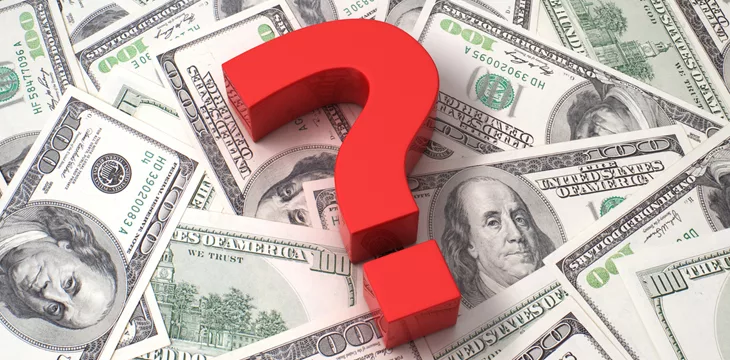Does FTX founder Sam Bankman-Fried (SBF) deserve to spend more time in jail than a Las Vegas businessman who used BTC to launder drug trafficking proceeds for a Mexican cartel?
On March 4, Damian Williams, U.S. Attorney for the Southern District of New York,
announced the conviction of Martin ‘Marty’ Mizrahi on charges of wire fraud, bank fraud, money laundering, aggravated identity theft, and other offenses. The verdict followed a 12-day trial in a Manhattan federal court.
Mizrahi was one of four defendants indicted in December 2022 for a wide-ranging fraud operation that ran from early- to mid-2021. The fraud started with a business email compromise (BEC) scheme that obtained access to the email accounts of some pivotal executives, including the chief financial officer of a New York non-profit and an employee of a portfolio company owned by a private equity fund.
Through these compromised emails, banks were directed to send millions of dollars via interstate wire transfers to accounts controlled by the fraudsters. These misappropriated funds were quickly dispersed to multiple other accounts, converted to BTC, and transferred to digital wallets under Mizrahi’s control.
While all this was happening, Mizrahi also ran millions of dollars worth of bogus credit card charges through what the Department of Justice (DoJ) called “his company.” The company wasn’t identified, but Mizrahi operated the Las Vegas-based internet service provider LV.net (and also founded the Vegas.com tourism site).
A superseding indictment filed last December poured gasoline on this dumpster fire. Mizrahi and two other members of his crew were accused of helping to “launder bulk cash narcotics proceeds by converting it into cryptocurrency…on behalf of individuals involved in a drug trafficking organization.” The DoJ’s post-conviction statement indicated that the drug traffickers were “associated with a Mexican-based cartel.”
Shortly after his original indictment, Mizrahi told the local CBS affiliate that the feds had seized funds from him in August 2021, but these funds were “based on [BTC] that I had sold in May 2021. The funds transmitted to me were simply payment in consideration for [BTC].”
Mizrahi, who maintained his innocence throughout this affair, said at the time: “I fully believed the funds that were wired to me were from a legitimate source and I had no reason to believe otherwise.” It was only later that he “learned that the origin of the funds was compromised and potentially the product of criminal activity.”
The 51-year-old Mizrahi may regret not taking a plea deal, as he faces a potential maximum sentence of 127 years after being convicted on all counts.
Sam loves lettuce, so cut him some slack
On March 28, FTX founder SBF will learn how close his sentence will come to matching Mizrahi’s. SBF was found guilty last November on seven counts of wire/securities fraud and conspiracy following a five-week trial during which SBF didn’t really show any sign of remorse.
In fact, SBF showed little understanding of the pain and hardship he’d caused FTX customers, who are still waiting to be reunited with their funds that were frozen when FTX went dark in November 2022. The lengthy post-mortem of FTX’s tangled finances is ongoing, and so far, the bankruptcy lawyers are the only ones getting paid.
Late last month, SBF’s legal team filed a sentencing memorandum in which they pushed back on those who believe SBF is “one of history’s more notorious fraudsters.” Those people “don’t know the true” SBF, according to a raft of testimonials submitted on SBF’s behalf that focus on SBF’s alleged charitable efforts and (bizarrely) his vegan lifestyle.
Considering that many of these testimonials claim that SBF is “always quick to admit fault” and is “deeply, deeply sorry…for the pain he caused over the last two years,” we can safely assume that most of the authors skipped the trial coverage.
A pre-sentencing report recommended that SBF serve exactly 100 years—10 years less than the maximum statutorily authorized sentences for the seven counts on which he was convicted. SBF’s lawyers called that proposal “barbaric” and “grotesque” and suggested a sentencing range of between 63-78 months was more appropriate.
The new math
SBF’s team argued that contrary to early calculations of a $10 billion hole on FTX’s balance sheet, “customers and creditors who can prove their losses are expected to get back all of their money.” As such, SBF’s team argues that “the correct loss figure is zero.”
But that figure was definitely not zero at the time of FTX’s bankruptcy when customers tried to access what was rightfully theirs without success. It’s only due to (a) the token value bubble currently underway, and (b) the dramatic rise in the value of certain FTX investments (like AI firm Anthropic) that the opportunity to make customers/creditors’ whole’ is an option.
But SBF’s role in the above two factors is effectively zero. He could not have predicted their occurrence, much as he can’t predict that their values will remain elevated should (a) the bubble burst and/or (b) Anthropic suddenly informs its users that it’s achieved sentience and all humans must die.
And yet SBF’s team has the balls to say that “the payment in full to customers and creditors does not depend on any windfall of current crypto market conditions. Rather, the company was solvent at the time of the bankruptcy petition. The money was there—not lost.”
So long as we’re talking about customers getting back “all of their money,” remember that the FTX estate has pledged to return the fiat value of customers’ tokens at the time of bankruptcy. In other words, at fractions of their current value. Nowhere do SBF’s attorneys detail the choices that customers may have wanted to make in the 16 months (and counting) that they’ve been deprived of their property.
SBF’s team also insists that “Sam intended to pay the money back.” Sure, he did. He just couldn’t do so when customers actually wanted to be paid. A degenerate gambler who embezzled millions and bet it all on a single roulette spin could claim he intended to pay it all back and totally would have had that damn ball landed on red rather than black. Oh, did I mention I’m a vegan?
As for FTX’s creditors, on March 6, the FTX bankruptcy estate announced it had reached an $874.5 million settlement with equally bankrupt digital asset lender BlockFi. The deal calls for BlockFi to receive a partially secured claim of $250 million and an unsecured claim on the remainder. While hopes are high that BlockFi’s retail customers will be made whole, that unsecured $625 million is contingent on FTX being able to repay its own customers first.
Not buying SBF’s act
Customer restitution aside, the length of SBF’s sentence may hinge on his behavior both before and during the trial.
Remember that SBF’s bail was revoked after U.S. District Judge Lewis Kaplan concluded he’d violated its terms by accessing the internet via a virtual private network (VPN),
contacting former colleagues in what appeared to be efforts to align their testimony, and leaking former colleague/ex-girlfriend/witness for the prosecution Caroline Ellison’s
private diaries to the New York Times in what was viewed as an attempt at witness intimidation.
If that wasn’t enough to earn Kaplan’s ire, a recent article in Slate observed that SBF’s behavior in court—refusing to provide clear answers to repeated questions from not only prosecutors but from Kaplan himself, while being less than truthful when he did answer—seemed “designed in a lab to infuriate a judge.”
As former assistant U.S. attorney Rachel Maimin observed, “If you commit perjury during your trial, I think any judge is going to take that into account at sentencing.” Perjury is “a perversion of the legal system. It’s one of the most serious nonviolent crimes that you can commit, because the jury is there, you’ve sworn an oath to tell the truth, and then you lie.”
No more shots across the bow
The DoJ is expected to post its response to SBF’s ‘actually, I think I did great’ memo by March 15. Presumably, it will focus less on how committed SBF might be to his vegan diet and more on how he forced around one million FTX customers to swallow a big ole sh*t sandwich. Judge Kaplan will then mull these competing viewpoints and render his decision.
So, getting back to the question at the top of this article: who will end up serving more time, Mizrahi or SBF? Both screwed up big time, committing crimes they should have realized would eventually be exposed while insisting their innocence to the end despite all evidence to the contrary.
Mizrahi targeted banks and credit card issuers, while SBF fleeced his unwashed masses. Mizrahi had far fewer victims, but SBF didn’t launder cash for Mexican drug cartels (although the in-house psychiatrist who had to deal with FTX executives’ constant demands for Adderall and Xanax might count if you’re really desperate to make the point).
Should Mizrahi be sentenced over the next seven weeks, it may offer a hint of what’s in store for Binance founder Changpeng ‘CZ’ Zhao, who will be sentenced on April 30
following his $4.3 billion settlement for violating the U.S. Bank Secrecy Act. Those violations were particularly egregious, and while the post-settlement CZ has played contrite, he spent years looking the other way as drug traffickers, money launderers, and terrorists used his platform to facilitate their respective crimes.
Whoever emerges as the ‘winner’ in this detention derby, one thing will be clear: U.S. authorities have lost patience with ‘crypto’ crooks. We should expect fewer warning shots, more prosecutions, shorter trials, and longer sentences. Maybe then this sector can finally get back to doing something positive with blockchain technology and leaving the grifting to someone else.
Follow CoinGeek’s Crypto Crime Cartel series, which delves into the stream of groups—from BitMEX to Binance, Bitcoin.com, Blockstream, ShapeShift, Coinbase, Ripple, Ethereum, FTX and Tether—who have co-opted the digital asset revolution and turned the industry into a minefield for naïve (and even experienced) players in the market.
New to blockchain? Check out CoinGeek’s Blockchain for Beginners section, the ultimate resource guide to learn more about blockchain technology.








